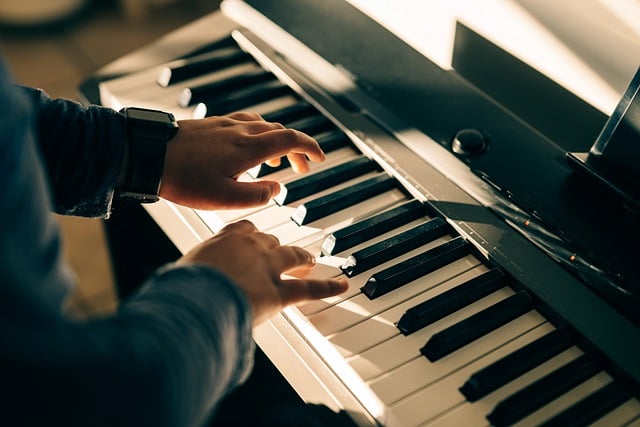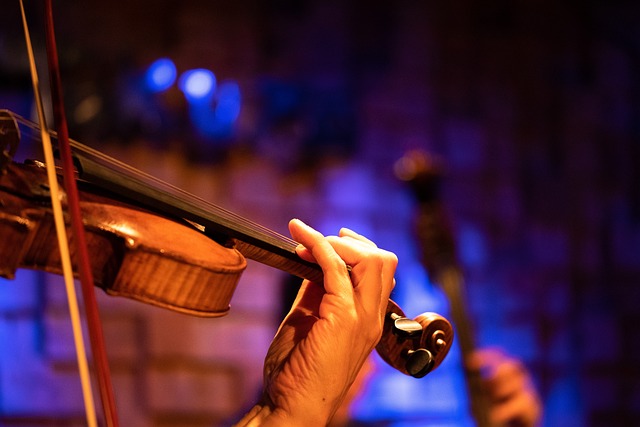
In my previous piece, I shared the intriguing notion that consciousness is a profoundly mysterious phenomenon. Today, we delve into part two, exploring the shared traits between music, sports, and the mind.
Over the past eight years or so, I’ve been deeply engrossed in studying the mysteries of consciousness and its scientific aspects. When I first started becoming “aware” of consciousness, I noticed a series of coincidences that seemed almost too aligned to ignore.。
One day, while shopping, I noticed an advertisement at a supermarket bulletin board that read: “If you need repairs due to a car collision, visit our repair shop.” Not giving it much thought, I left for another nearby supermarket. While parking my car there, I accidentally parked at an angle and decided to readjust. As I was backing out, another car suddenly reversed into mine, colliding with me.
The driver immediately apologized, explaining they wanted to avoid filing an insurance claim. They suggested I follow them to a nearby repair shop they trusted. To my astonishment, it was the very same repair shop from the advertisement I had just seen.
I couldn’t help but feel a sense of responsibility, wondering if my brief awareness of the advertisement somehow played a role in orchestrating this strange event.

Another time, while shopping, I realized I had picked up more items than I could carry and wished I had grabbed a basket. Just then, the person in front of me accidentally dropped a shopping basket she had unknowingly been carrying in double. Grateful for the convenience, I used the basket and continued my shopping.
These events don’t happen every day, but they do occur occasionally. Each time, they remind me of the mysterious interplay between my awareness and the external world. Nothing occurs without a cause, even if we cannot fully comprehend it.
Why do I persist in exploring the nature of consciousness? Because, despite being an uncharted realm, it holds the key to understanding everything about our reality.
If we could scientifically unlock the mysteries of consciousness, we would unravel questions about human existence—why we live, where we come from, and where we are going. Yet, humanity continues to live without a clear understanding of its own existence. Isn’t that peculiar?
In our daily lives, our consciousness constantly shifts from one thought to another. Rarely do we engage in an activity with pure, undivided focus. Often, our thoughts are consumed by regrets about the past or concerns about the future.
Consciously practicing focus is akin to training. In essence, focus means “gathering awareness into the center,” channeling it inward.
Concentration gathers energy. The more concentrated we are, the easier it becomes to achieve our goals. Training our minds to focus is an essential skill for life.

Meditation has gained popularity as a practice for honing focus. While many techniques exist, at its core, meditation is a personal experience that no one can truly teach you. It’s about what you choose to focus on.
Meditation doesn’t require special tools or settings. It’s about imagining and directing your thoughts purposefully. What you spend time imagining shapes your life.
Meditation, as the Japanese character for meditation (想) suggests, is about engaging with one’s inner thoughts. Ultimately, it is something that no one else can truly teach you, because no one can enter your inner world. Therefore, strictly speaking, meditation cannot be “taught.”
Meditation does not require a special place or time. This is because the act of thinking is something that anyone can do, anywhere and at any time.
The key lies in what you focus on while meditating. Meditation is essentially about contemplating the unseen.
In this sense, we are always meditating in our daily lives. We constantly imagine and visualize things that are not physically present, such as memories of the past or projections of the future. Consequently, how much time we spend and what we choose to think about shapes our lives. It would not be an exaggeration to say that a person’s life is determined by these choices.
This concept may be a bit abstract, but if we could focus deeply on a specific thought or idea, we might elevate our way of living to a higher level as human beings. This could be described as “living in connection with the heavens.”
Reaching such a state, however, is exceptionally difficult. Throughout history, individuals like Jesus Christ or the Buddha, who have achieved such profound states, are exceedingly rare. Only a handful of people in any era ever attain such a level of human potential. They remain timeless figures of admiration and aspiration for humanity.
The principle of focusing on your center applies not only to physical activities like playing musical instruments or sports but also to the mind.
Whether it’s playing piano or violin, controlling the body’s movements relies on a centered awareness. Similarly, in sports, maintaining balance and form originates from a central point of stability.
This principle extends to emotional challenges. A centered mind remains unshaken by external events, enabling us to navigate life’s difficulties without unnecessary turmoil.
I have often experienced that by consciously focusing on the essence of my own awareness, things begin to fall into place smoothly.

I have been playing the piano and violin as a hobby since I was a child. As it is just a hobby, I greatly admire professional performances of challenging pieces played to perfection.
One day, while watching an animated film, I was completely captivated by a Chopin piano piece that played during the movie.
“I could never possibly play such a piece,”
I thought, yet I couldn’t help but aspire to try. Of course, I knew very well that professional pianists practice far more rigorously and are in a league of their own. Still, I thought to myself:
“If they were physically different beings from another planet, I’d give up. But since they are human just like me, surely it’s not impossible for me to play it.”
From that point on, I began practicing for hours every day. Gradually, I improved little by little, and I increased the number of pieces I could play all the way through. Although the gap between my abilities and those of professionals remained enormous, being able to play these pieces gave me confidence.
After repeatedly playing, I came to understand certain things on my own—how to achieve faster finger movements, for instance. I also realized this:
The most fundamental thing is form.
In both playing musical instruments and sports, the importance of form is emphasized from the very beginning. However, we often don’t fully understand why that form is so essential. As a result, while we’re still inexperienced, we tend to develop our own makeshift techniques. I, too, picked up some odd habits that stuck with me for a long time.
In my experience, changing teachers sometimes led to adopting the quirks of the new teacher, which added even more peculiar habits. This was especially true with the violin, where teaching styles could differ drastically from one instructor to another.
Later in life, after my children had grown and I had more free time, I began playing again as a hobby.
During a trip back to Japan, I opened my violin case for a security check at the airport. When the staff asked how long I had been playing, I replied, “Half a century,” and even I was surprised by my own answer.
Even after fifty years, the violin remains a formidable challenge.

Returning to the main point, the most important aspect of any action is its form. And when performing those actions, what should be focused on is the center. Whether playing piano or violin, it is about the center of the space within the palm of your hand. By focusing on this center, your fingers can move smoothly and effortlessly from that central point.
In both piano and violin, the fingers move while the hands also shift position. Even in such movements, focusing on the center ensures stability and prevents unnecessary actions.
The same applies to sports, where maintaining balance is crucial. This is because every physical movement has a center, and from beautiful form comes beautiful motion.
Of course, beyond that, subtle and delicate movements of the fingers, hands, or body can be used to create expressions, but that can only happen once movements originating from the center become unconscious. By directing awareness not to the visible fingers or hands, but to the invisible space, it becomes possible to achieve richer movement.
Music is a continuous flow of delicate and intricate hand movements, and where you direct your awareness in those movements completely changes the tone. The difference in sound created by focusing your awareness is like a fascinating experiment—it is truly intriguing.。
So far, I have discussed the importance of focusing on the center when moving the body, but this is not limited to physical movements alone.
The same principle applies to the mind. It is crucial to focus on the center.
There is a term, fudoshin (immovable mind), which refers to maintaining a calm mental center. By keeping the mind focused on its center and not allowing it to waver, you can navigate challenges without unnecessary reactions or agitation, just as in music or sports.
However, life is likely shorter than we imagine.
Even though I have played the piano and violin for many years, I still cannot fully control my hands, fingers, or body to produce the rich expressions of a professional.
Similarly, even though we live many years as human beings, mastering control over our emotions and mental movements remains challenging and elusive.
The key lies in training ourselves to maintain focus on the core of our mind, keeping our inner balance unaffected by surrounding circumstances.
I believe that consciously directing awareness to the center is the only way to overcome any challenge.
In music, progress can be measured by sound. How do we measure progress as human beings? While I do not know how many more years I have left to live, I aim to continue striving for improvement in everything, moving forward with a spirit of growth.